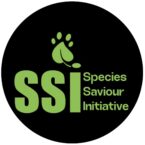Sustainable Livelihoods & Climate Resilience
At Species Saviour Initiative (SSI), we believe that sustainability and conservation go hand in hand. For conservation to be successful, it must benefit the communities that rely on natural resources for their livelihoods. By promoting eco-friendly income sources, fostering climate resilience, and empowering communities, we are ensuring that environmental protection becomes a sustainable and inclusive effort that supports both people and nature.
Our work focuses on building sustainable livelihoods that reduce dependence on activities that harm the environment, while also enhancing the ability of communities to adapt to the challenges posed by a changing climate.

Alternative Livelihoods
One of the key strategies SSI employs to support conservation is the promotion of alternative livelihoods that are both eco-friendly and economically viable. In remote communities, many individuals rely on activities that harm the environment, such as charcoal production or unsustainable farming practices. To break this cycle, we are introducing sustainable economic alternatives that offer a sustainable source of income without depleting natural resources.
These alternatives include:
• Honey production: Supporting the sustainable development of local beekeeping businesses as a means to diversify income and protect pollinator species.
• Frankincense trade reform: We are working to promote sustainable harvesting practices for frankincense trees, ensuring the long-term health of these precious forests. This includes training communities in responsible harvesting and combating the spread of invasive species, parasitic plants, pests, and fires that threaten these habitats.
• Forest-friendly enterprises: Encouraging small-scale, sustainable ventures that promote the conservation of natural habitats while offering communities an income. These businesses are designed to be in harmony with the ecosystem and reduce environmental degradation.
By helping communities develop these alternative livelihoods, we are reducing the pressure on the environment and fostering a more sustainable future.

Climate Adaptation & Ecosystem-Based Solutions
As climate change accelerates, the ability of communities to adapt to droughts, floods, and land degradation is more important than ever. At SSI, we promote nature-based solutions (NbS) to address the challenges posed by climate change. These solutions harness the power of ecosystems to enhance climate resilience, protect communities, and restore natural habitats.
Our approach includes:
- Reforestation and habitat restoration: Rebuilding ecosystems that can serve as carbon sinks, enhance water retention, and provide livelihoods while reducing the impacts of climate change.
- Sustainable land management: Implementing practices that help prevent soil erosion, improve water retention, and reduce the effects of extreme weather events.
- Biodiversity conservation: Ensuring that ecosystems are protected and restored so they can continue to provide critical services, such as food, water, and shelter, for local communities.
Through these efforts, we help communities become more resilient to the changing climate, while also contributing to global efforts to combat climate change.


Women & Community Empowerment
Sustainability is not just about protecting the environment; it’s also about ensuring that the benefits of conservation are shared equitably across society. Women’s empowerment is a central focus of SSI’s work. We believe that empowering women and local communities is essential for achieving lasting conservation and economic development.
Our work in community empowerment includes:
- Inclusive economic development: Ensuring that women have equal access to economic opportunities, including training in sustainable livelihoods such as beekeeping, agriculture, and eco-tourism.
- Decision-making in conservation: Actively involving women in conservation decision-making processes, ensuring that their voices are heard and their contributions are valued.
- Leadership development: Providing women and youth with the tools and support they need to become leaders in conservation efforts and community development.
By empowering women and fostering inclusive decision-making, we are ensuring that all members of the community contribute to and benefit from the conservation efforts, creating a more equitable and resilient society.
